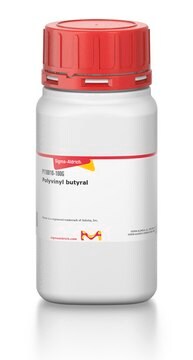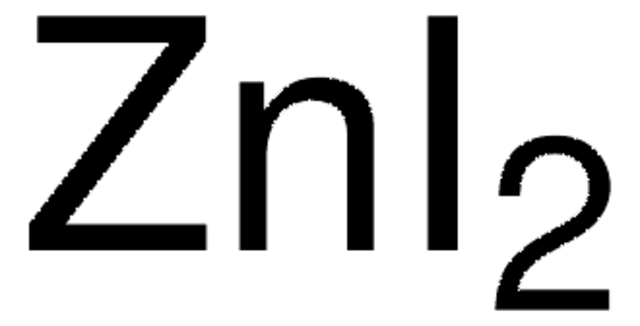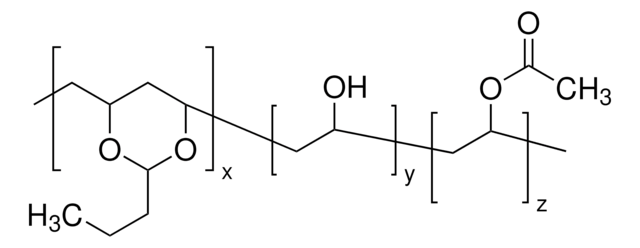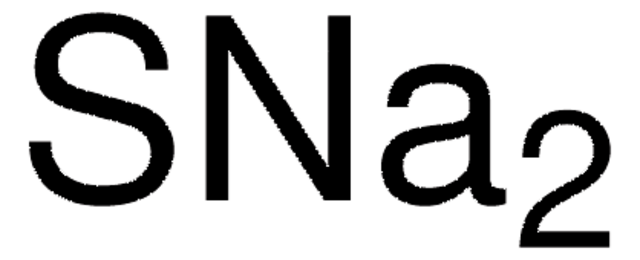223883
Zinc iodide
≥98%
Sinónimos:
Diiodozinc, Zinc diiodide
About This Item
Productos recomendados
grado
for analytical purposes
Nivel de calidad
Ensayo
≥98%
Formulario
powder
idoneidad de la reacción
reagent type: catalyst
core: zinc
mp
445 °C (lit.)
densidad
4.74 g/mL at 25 °C (lit.)
cadena SMILES
I[Zn]I
InChI
1S/2HI.Zn/h2*1H;/q;;+2/p-2
Clave InChI
UAYWVJHJZHQCIE-UHFFFAOYSA-L
¿Está buscando productos similares? Visita Guía de comparación de productos
Categorías relacionadas
Aplicación
- As an activator to synthesize poly(vinyl methyl ether) via living cationic polymerization. ZnI2 is known to produce living vinyl ether polymerizations.
- To prepare precursor solutions for lead halide perovskite solar cells. The addition of ZnI2 leads to higher stability against environmental moisture when introduced into perovskite cells.
Palabra de señalización
Warning
Frases de peligro
Consejos de prudencia
Clasificaciones de peligro
Aquatic Acute 1 - Aquatic Chronic 1 - Eye Irrit. 2 - Skin Irrit. 2 - STOT RE 2 Oral
Órganos de actuación
Thyroid
Código de clase de almacenamiento
13 - Non Combustible Solids
Clase de riesgo para el agua (WGK)
WGK 3
Punto de inflamabilidad (°F)
Not applicable
Punto de inflamabilidad (°C)
Not applicable
Equipo de protección personal
Eyeshields, Faceshields, Gloves, type P3 (EN 143) respirator cartridges
Elija entre una de las versiones más recientes:
¿Ya tiene este producto?
Encuentre la documentación para los productos que ha comprado recientemente en la Biblioteca de documentos.
Los clientes también vieron
Global Trade Item Number
| Número de referencia del producto (SKU) | GTIN |
|---|---|
| S232815-1EA | |
| 223883-250G | 4061838778758 |
| 223883-50G | 4061838778765 |
Nuestro equipo de científicos tiene experiencia en todas las áreas de investigación: Ciencias de la vida, Ciencia de los materiales, Síntesis química, Cromatografía, Analítica y muchas otras.
Póngase en contacto con el Servicio técnico












